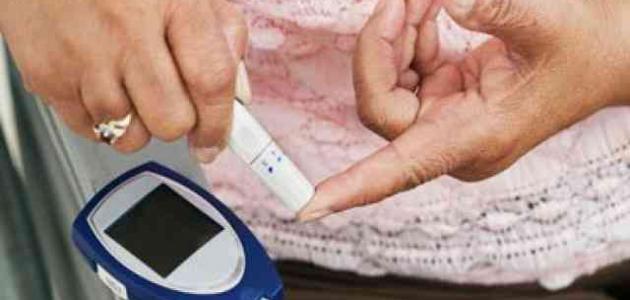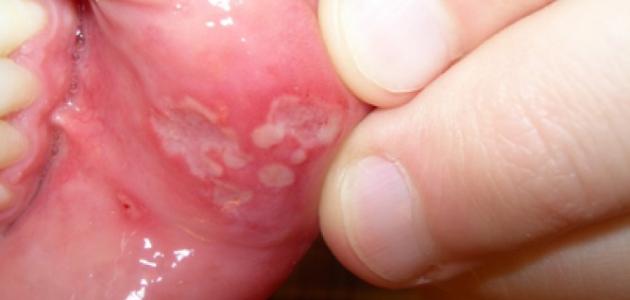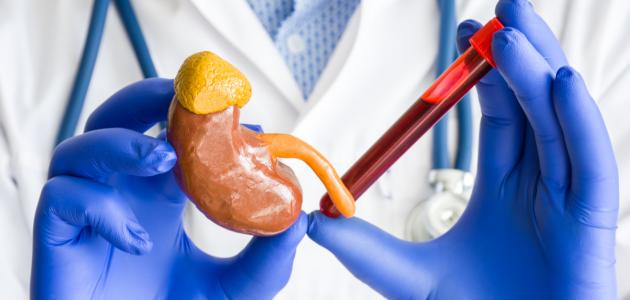Contents
Behçet's disease
Behcet's syndrome, Behcet's syndrome, or Silk Road disease, is an autoimmune disease that affects the functioning of the immune system, as it attacks the blood vessels in the human body, causing them to become inflamed and swollen, and it would affect any of the blood vessels that pump Blood around the various parts of the body, [1] [2] and three main symptoms are indicated in cases of Behcet's disease; These are recurrent mouth ulcers, genital ulcers, and uveitis, [3] and it is classified as a chronic disease.Behcet's disease was known by this name according to the Turkish doctor Hulusi Bahjat, who described the disease in 1930, and it should be noted that most of those infected with this disease can live with it and enjoy a full productive capacity, as there are several treatment plans that will alleviate the symptoms that resulting in and reduce the incidence of less the , [2] [1] and often improve symptoms of Behcet over time and progress in life so that the person can dispense medicines, [4] in this context , referred to as the disease BS is more common in countries in the Middle It is rare in the United States of America. [2]
To learn more about Behçet’s disease, you can read the following article: ( What is Behç’s disease ) .
Behcet's disease treatment
So far, no definitive treatment has been reached for Behçet's disease, and the treatment plan followed in these cases depends on the use of some medicines and treatments that relieve symptoms and reduce the incidence of complications, and in all cases, the patient is transferred after determining his / her Behcet’s disease to a specialist doctor to determine the appropriate treatment pattern for the case. The treatment is determined based on the type of symptoms and their severity, and there are some patients whose cases require continuous drug treatment to control any potential serious complications. Such as loss of vision , and other situations that may need medication only when attacks occur. [5] In this context, it is indicated that a group of drugs used to control the symptoms that result from having Behcet's disease is indicated, and they can be divided as follows: [6]
Corticosteroids
Steroids corticosteroids or as it is called corticosteroids, which are manufactured drugs used as an anti-inflammatory, used to alleviate inflammation caused by infection disease Bahgat, where are identified symptoms associated with the disease and build them prescribed corticosteroids and Form the most appropriate to the situation; Tablets or capsules that are taken orally or the types that are given by injection are prescribed to reduce inflammation throughout the body, and those available in the form of topical creams, gels or eye drops reduce inflammation locally, and it is worth mentioning that the side effects of The use of corticosteroids depends mainly on the pharmaceutical form used, and in general the emergence of side effects is associated with their use over long periods of time, such as the occurrence of skin thinning associated with the use of topical corticosteroids for long periods, [6]In general, corticosteroids may lead to weight gain, heartburn, high blood pressure, and osteoporosis . [7]
Immunosuppressants
As the name indicates, immunosuppressants are drugs that suppress the immune system . For this reason, it is considered a main treatment for people with Behcet's disease, as it reduces the inflammatory process associated with this disease, and thus controls the symptoms associated with inflammation, and inflammatory inhibitors are available in several forms. Some of them are topical, which are in the form of a gel, ointment, or cream, including injections that are taken intravenously, and another type that is taken orally in the form of tablets or capsules, [8]Examples of immunosuppressants are: azathioprine, cyclosporine, and cyclophosphamide, and it is worth noting that the use of immunosuppressants of various types may increase the risk of infection due to the fact that they reduce the effectiveness of the immune system In addition to the possibility of some side effects, such as: low blood counts, high blood pressure , and kidney and liver problems. [7]
Biological treatments
Biological therapies are one of the methods used in cases of Behçet's disease due to their effectiveness in reducing the infections associated with this condition. The following are the most prominent examples: [9] [10]
- Interferon alpha-2b: , which regulates the work of the immune system and controls inflammation, and may be prescribed alone or in conjunction with other treatments to control skin ulcers, eye inflammation and joint pain that may appear on people with Behcet's disease, but it is possible It can produce some flu-like side effects; As muscle pain and fatigue.
- Factor inhibitors of tumor necrosis: , such as a drug adalimumab , and infliximab , and Aitanirsept , and Sartoleezzomab , and used in some disease cases Bahjat In which the person suffers from more severe symptoms or resistance to other treatments, as these drugs inhibit one of the proteins that play a role in the occurrence of inflammation and the development of the disease, but it is possible that the use of this type of medicine may result in some side effects; Such as headache , rash, and increased risk of infection.
Treating symptoms of Behcet's disease
Behcet's disease is accompanied by a set of signs and symptoms, and the doctor may prescribe certain treatments aimed at relieving a specific symptom of them, and the following is an explanation of each of the side effects of the disease and the treatment followed to control it. [11]
Rash and sores on the skin
It can treat sores and rashesWhich may appear on the genitals and the mouth area in some people with Behçet's disease with corticosteroid medicines in the form of ointments, creams, or lotions on the skin in case the sores are mild, or by using the drug thalidomide or dapsone or Colchicine, if the ulcers are more severe, but in very severe cases in which the previous treatments did not work in alleviating their severity, immunosuppressants, including oral corticosteroids, azathioprine, or methotrexate may be used. It is worth noting that there are several drug options that are used as a mouthwash that temporarily relieves mouth pain. Such as Procaine or preparations containing a mixture of Bismuth Subsalicylate with Diphenhydramine (in English:[11]
Eye infection
Behcet's disease causes eye infections in some people with this disease, and this requires special medical intervention and care by the ophthalmologist to avoid the development of inflammation and the occurrence of greater complications that lead to vision loss and blindness , and appropriate treatment is usually prescribed based on the nature of the symptoms and their severity, and from These treatments include the following: [12]
- Steroid eye drops.
- Immunosuppressants that are taken orally, and cyclosporine is one of the most commonly used drugs for eye inflammation associated with Behcet's disease.
- Immunosuppressants that are taken intravenously, the most important of which is cyclophosphamide, and are often prescribed for very severe infections that may cause vision loss.
Arthritis
Joint pain is a symptom that afflicts many Behcet patients, and it is possible to control it by following the same approach used in treating joint pain resulting from arthritis, and the doctor often begins by following a step-by-step treatment plan that begins with prescribing regular pain relievers. Paracetamol , and in the event that it does not work, he may prescribe a non-steroidal anti-inflammatory. Such as naproxen and diclofenac , and doctors recommend the use of the types of COX-2 inhibitors NSAIDs because they cause less damage to the stomach lining compared to the other subtypes, and it is worth noting The use of NSAIDs for long periods of time may have some side effects, such as: stomach ulcersIndigestion, but if the joint pain is very severe and the previous treatments did not help, steroid injections can be prescribed, which are given directly into the affected joint. [8]
Digestive problems
Behcet's disease sometimes causes digestive problems; Such as inflammation of the intestine and stomach , and to alleviate these problems and symptoms, some medications can be prescribed, such as: corticosteroids, immunosuppressants and various biological treatments, but in advanced cases of the disease, enteritis may cause intestinal bleeding that is treated with various medical methods, and sometimes surgery may be used to remove The affected part of the intestine and stopping the bleeding, and perhaps the drug Mesalazine is one of the drugs used to reduce infections that affect the stomach and intestines and can be taken in two forms, either tablets or suppositories. [6] [12]
Headaches
The treatment of head pain and headaches that accompany patients Bahgat sometimes in the same ways in which patients treated by migraine , often described as spin - off drugs; Such as non-steroidal anti-inflammatories and Triptans, which aim to relieve its symptoms and reduce its consequences when it occurs, in addition to the preventive drugs that are taken regularly to prevent and prevent headaches. Among the preventive medications used are beta blockers. [8]
Blood clots
Anticoagulant Medications are used to treat blood clots that may occur in some people with Behcet's disease, and it is reported that there are two main types of anticoagulants used in cases of Behcet: heparin and warfarin , Antiplatelet Medication may also be prescribed. Aspirin , which dilutes the blood and thus inhibits the formation of blood clots and prevents the occurrence of clots in the future. [8]
Aneurysm
Some patients with Behçet's disease suffer from aneurysms, which are treated with the aim of reducing inflammation of the blood vessels and preventing their dilation and worsening them. (Intravenous Infusion), and in some cases other procedures or surgical solution can be used to repair the damaged blood vessels. This includes the installation of stents in some cases. [13]
Central nervous system inflammation
For some patients, Behcet's disease causes inflammation of the central nervous system, and the symptoms that result from this type of inflammation vary between simple; Such as drowsiness and double vision, and these symptoms may resolve on their own without the need for any medical and drug intervention, and between severe symptoms such as loss of bowel and bladder control and paralysis, and these cases require drug intervention, which is often in the form of injections of steroids, or immunosuppressants that are taken intravenously. [12]
Remission period for Behcet's disease
Remission is defined in cases of Behcet's disease as the period in which symptoms disappear for a certain period of time, with the possibility of their reappearance later, and it is impossible to know when the remission period began, although treatments may help alleviate Symptoms for long periods of time and help to control well the signs of the disease, but sometimes attacks of symptoms may flare up again, especially when the doses of medicines are reduced or the necessary treatments are stopped, and to maintain the period of remission as much as possible, the doctor may prescribe immunosuppressants for several years, with The possibility of adding corticosteroid drugs according to what the doctor deems appropriate, and with the passage of time most patients respond to treatment and enjoy long periods of time away from symptoms, and some of them may improve to a degree that enables them to stop taking the drugs for a long period of time. [4]
References
- ^ A b "What is Behçet's disease?" , www.medicalnewstoday.com , Retrieved 7/5/2020. Edited.
- ^ A b t "Behcet Disease" , Www.cedars-sinai.org , Retrieved 7/5/2020. Edited.
- ↑ "Behcet Disease" , emedicine.medscape.com , Retrieved May 16 , 2020 . Edited.
- ^ A b "Medication For Behcet's Syndrome type " , Nyulangone.org , Retrieved 7/5/2020. Edited.
- ↑ "Behçet's disease" , www.nhs.uk , Retrieved 7/5/2020. Edited.
- ^ A b t "Behcet's DISEASE" , Www.nhsdirect.wales.nhs.uk , Retrieved 7/5/2020. Edited.
- ^ A b "Behcet's DISEASE" , Www.mayoclinic.org , Retrieved 7/5/2020. Edited.
- ^ A b t w "Behçet's DISEASE" , Www.hse.ie , Retrieved 8/5/2020. Edited.
- ↑ "Behcet's disease" , www.nchmd.org , Retrieved 8/5/2020. Edited.
- ↑ "Treatment of Behcet's Disease" , www.behcets.com , Retrieved 5/5/2020. Edited.
- ^ A b "Behcet's Disease" , Www.drugs.com , Retrieved 8/5/2020. Edited.
- ^ A b t "Behçet's DISEASE" , Www.your.md , Retrieved 8/5/2020. Edited.
- ↑ "Treatment - Behçet's disease" , www.nhs.uk , Retrieved 9/5/2020. Edited.






